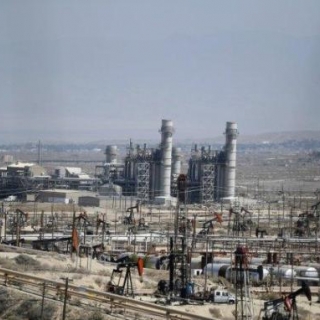


Oil prices edged up in Asian trade on Thursday after Saudi Arabia's state oil company sharply raised March crude prices, but the gains were small compared with the biggest drop in benchmark Brent crude in nearly three months the previous day.
Brent crude was up 8 cents at $74.69 a barrel by 0422 GMT. U.S. West Texas Intermediate crude was up 15 cents at $71.18 a barrel.
Oil prices had fallen more than 2% on Wednesday as a big build in U.S. crude and gasoline inventories signaled weaker demand, and as investors weighed the implications of a new round of U.S.-China trade tariffs, including duties on energy products.
Prices have fallen about 10% from a 2025 high hit on Jan. 15, five days before Donald Trump took office as U.S. president. Analysts expect markets to be volatile in the coming weeks.
"We can expect significant price volatility over the coming weeks and months as markets scramble to assess the impact of Trump's new policy stance, particularly on tariff measures," analysts at BMI said in a note on Thursday.
A sharp rise in prices for Asian buyers by Saudi Aramco (TADAWUL:2222), the world's top oil exporter, stemmed Wednesday's sell-off.
"After the overnight sell-off and the Saudi news, there is likely to be some buying from traders covering short positions ahead of strong support in the $70/68 region," said Tony Sycamore, market analyst at IG.
Last month the US imposed aggressive new sanctions on Russian oil trade, targeting "shadow ships" understood to be used to circumvent the trade blockade. Since taking office, Trump has imposed tariffs on China, although they have fallen short of his campaign threats. Beijing in response announced tariffs on US oil, liquefied natural gas and coal imports on Tuesday, but China's purchases from the US have been relatively modest, softening the blow of the new measures.
"While some tariff actions could put upward pressure on oil prices, the net impact is likely to be negative, given their adverse impact on the global economy and Trump's proven willingness to offer exemptions for energy (to limit the impact on supply)," BMI said.
Source: Investing.com
Oil prices stabilized on Thursday (February 12th), as the market reassigned a risk premium to US-Iran tensions despite US inventory data showing swelling domestic supplies. This movement confirms one ...
Oil prices rose on Wednesday (February 11th), supported by a combination of geopolitical risk premiums from US-Iran tensions and more solid Asian demand signals particularly from India which helped ea...
Oil remained in the green zone on Tuesday (February 10th), as the market refused to abandon the Middle East risk premium. As of 13:07 GMT (20:07 WIB), Brent rose +0.4% to $69.32/barrel, while WTI rose...
Oil prices fell about 1% on Monday as concerns about conflict in the Middle East eased slightly. The market calmed after the US and Iran agreed to resume talks on Tehran's nuclear program, reducing fe...
Oil prices moved slightly higher in a volatile session on Friday, as investors assessed the direction of nuclear negotiations between the United States and Iran. Price movements appeared sensitive to ...
Oil prices stabilized on Thursday (February 12th), as the market reassigned a risk premium to US-Iran tensions despite US inventory data showing swelling domestic supplies. This movement confirms one thing: geopolitical headlines are still more...
Gold prices weakened slightly on Thursday (February 12th), as more solid US employment data reduced market confidence in an imminent Federal Reserve interest rate cut. The strong employment data prompted market participants to shift expectations of...
The Hang Seng Index reversed its downward trend in Hong Kong on Thursday (February 12th), weakening by around 0.9% to around 27,000 after a strong session earlier. This decline halted the momentum of the short term rally, as investors began to...